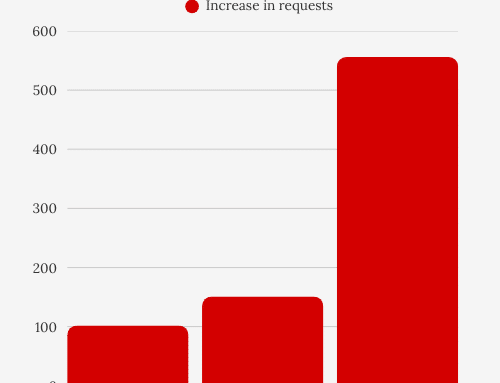Confidential sources still protected if journalist dies, U.S. court rules
On Thursday, Oct. 5, the Nevada Supreme Court ruled that a reporter’s privilege survives death and can be claimed by the journalist’s newspaper.
The practical effect of the ruling is to protect a journalist’s sources, even if the journalist dies. The Signals Network filed an amicus brief in the case, advocating for the privilege to be upheld so whistleblowers can be assured their identities will be protected in such cases.
Case involved slain journalist’s seized devices, risking confidential sources
The case reached the Nevada Supreme Court after police and the Las Vegas district attorney’s office insisted on reviewing the seized devices of slain journalist Jeff German.
German, an investigator reporter for the Las Vegas Review-Journal, was allegedly killed by Robert Telles, former Clark County public administrator, who lost his re-election bid after German published an investigation into the hostile work environment in Telles’ office and Telles’ inappropriate relationship with a staffer.
Telles’ DNA was found at the crime scene. Despite this, police seized German’s devices and attempted to search them, over objections and litigation filed by the Las Vegas Review-Journal. The newspaper offered to allow an independent third party to search the devices and first remove any privileged material, but the police and prosecutors refused.
It recently came to light that the police searched at least one of the devices without informing the Journal or the Court.
German was a longtime and prominent investigative journalist who had sources in multiple agencies, including the police department, who could be exposed by a search of his devices.
The Signals Network filed an amicus brief in this case, focused on the need to protect sources, and the possibility that at least some of those sources were whistleblowers. German had confidential sources within both the police department and district attorney’s office, according to the The Review-Journal.
Ruling sets new precedent to protect confidential sources in U.S.
The Nevada Supreme Court held the newspaper has standing to assert the state shield law even though the statute speaks in terms of the “reporter” having the privilege. While the privilege is not absolute — it can be trumped by a criminal defendant’s constitutional rights to a fair trial — “to hold that the privilege [the Nevada Shield Statute] creates ends with German’s death…would be contrary to the statute’s purpose.”
The Supreme Court then instructed the district court to appoint two specialized people to conduct a search of the devices for relevant evidence, as initially offered by the Las Vegas Review-Journal.
This is the first time in the U.S. where a court has held that, when a reporter dies, the confidentiality of their sources and their news gathering materials don’t die with them.
Rather, the news organization they work for gets to assert that privilege, according to attorney and TSN friend Ashley Kissinger, who represented The Review-Journal as the appellant in the case.
While this ruling establishes a precedent that only technically applies in Nevada, in practicality it will apply nationwide, she said.
“The win is tremendous,” Kissinger said. ”It’s been a hard fought fight. … So we are feeling very gratified that the Nevada Supreme Court agreed with us.”
Now, thanks to the ruling, when police want to look for evidence of a crime that is in the possession of a reporter, whether living or dead, they must go through a court process and have neutral third parties looking at the information on the devices.
This allows confidentiality of information provided to journalists to be maintained, even in death. In this case, it protected the journalists’ confidential sources within the police department and within this district attorney’s office. Without October’s ruling, their confidentiality could have been breached through the search.
“That could have had very, very negative consequences for those confidential sources,” Kissinger said. “They could have suffered personal and professional retaliation.”
About TSN
TSN is a 501(c)3 organization dedicated to supporting whistleblowers who risk their livelihoods to share public interest information with the press. Founded in 2017 by journalists, whistleblowers and lawyers, TSN operates internationally to hold powerful interests accountable. TSN provides customized support to a selected group of whistleblowers who have contributed to published reports of significant wrongdoing. This support may include legal, psychological, physical safety, temporary safe-housing, online safety, career support and communication support.
For journalist inquiries, email sarah@thesignalsnetwork.org.



